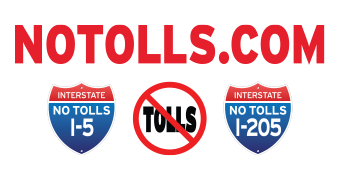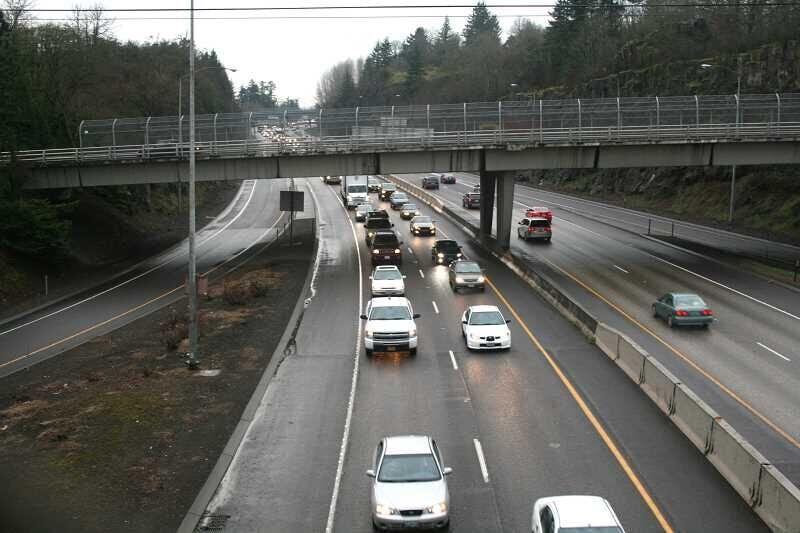Three-quarters of Portland metro area residents oppose tolling
By Holly Bartholomew, Canby Herald
Feb 26, 2024
According to a recent survey, three-quarters of Portland metro area residents oppose tolling local freeways. The cities of West Linn, Lake Oswego, Tualatin and Wilsonville, along with the union United Food and Commercial Workers, contracted local research firm DHM to conduct a region-wide tolling and transportation survey that featured this finding, among others.
These communities and others in Clackamas County have long resisted plans by the Oregon Department of Transportation to place tolls on I-5 and I-205. More than a third of respondents, 39%, said they had not heard or read anything about ODOT’s tolling proposals.
DHM randomly selected survey respondents from registered voters in Clackamas, Washington and Multnomah counties. The cities and union decided to conduct their own survey after criticizing a poll from ODOT that they said was an attempt to “manipulate public input.”
DHM highlighted that, in addition to opposing tolls, most respondents were also worried about the quality of major roadways and highways in the region. Eighty-one percent of those polled expressed concerns about traffic congestion and 74% shared unease about the state of major roadways. Tolls are intended to provide funding for road maintenance and infrastructure projects.
Support for tolling was lowest in Clackamas County, where only 8% of respondents said they support tolls in the Portland area, whereas 22% in Washington County and 24% in Multnomah County favored the idea.
Clackamas County residents also most strongly opposed ODOT’s plans for tolling on I-205 and I-5. According to the survey results, 83% of Clackamas County residents disagreed with ODOT’s Regional Mobility Pricing Project, which would toll I-5 and I-205 between Wilsonville and the Columbia River. Seventy-six percent of Washington County residents and 61% of Multnomah County residents rebuked the same plan.
However, residents and Washington and Multnomah counties indicated slightly stronger support for the I-205 Toll Project, which now includes tolls only on the Abernethy Bridge. In Multnomah County, 42% of respondents supported the idea along with 31% in Washington County and 14% in Clackamas.
The survey also asked readers about tolling on Highway 217 and US 26 in Washington County, which ODOT and other regional leaders have discussed. Washington County residents opposed these tolls more than tolls on I-5 and I-205 (80% of Washington County respondents said they opposed tolls on Highway 217 and US 26). Eighty-seven percent of Clackamas County residents and 70% of Multnomah County residents opposed tolls for Highway 217 and US 26.
To explain their dissent, most residents said taxes are already too high. Other prominent reasons, according to the survey, included that tolling is expensive and unfair to low-income drivers.
Tolling supporters said it will raise revenue and help supplement the state’s gas tax to pay for roadway maintenance and improvements. Additionally, most respondents (80%) indicated that public transit does not provide them a viable alternative to driving on I-5 and I-205.
Other than tolls, the survey asked voters about several alternative methods for funding transportation needs. Support was strongest for an increase to registration fees for electric vehicles (61% support). Thirty-six percent voiced support for increasing registration fees for all vehicles while 33% supported an increase to the gas tax and 24% favored a pay-per-mile system that would charge drivers a few cents for every mile driven.
“The poll results show that residents, workers, and businesses have real concerns about the region’s transportation system and that tolling is perceived by a large majority of voters across the region as harmful and inequitable,” the city of West Linn stated in a press release about the survey. “When combined with the significant startup and administrative overhead costs that tolling requires, these poll results indicate that other revenue approaches would not only be fairer with less negative impacts to communities, but also would be more popular and more efficient with community tax dollars.”


